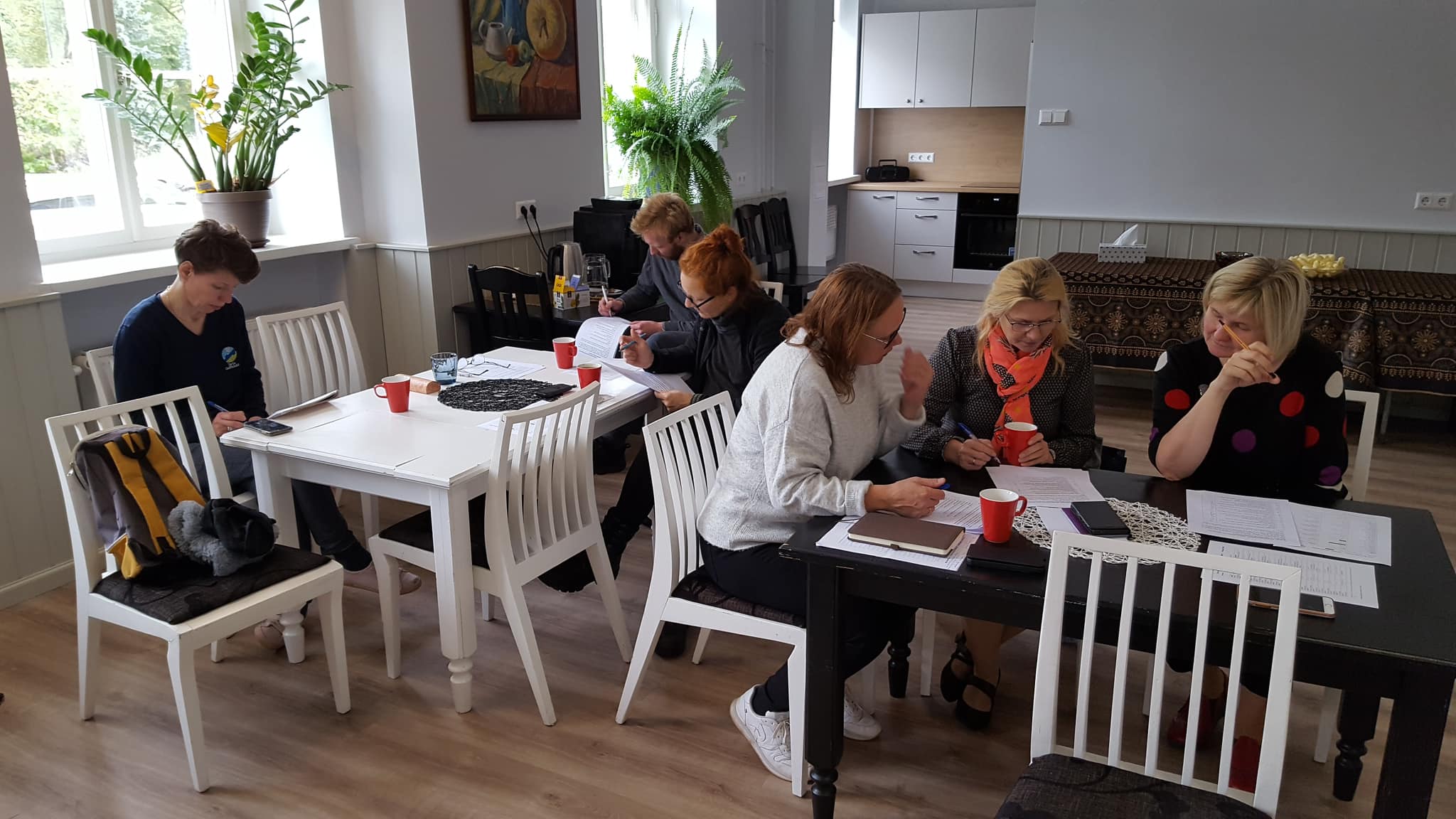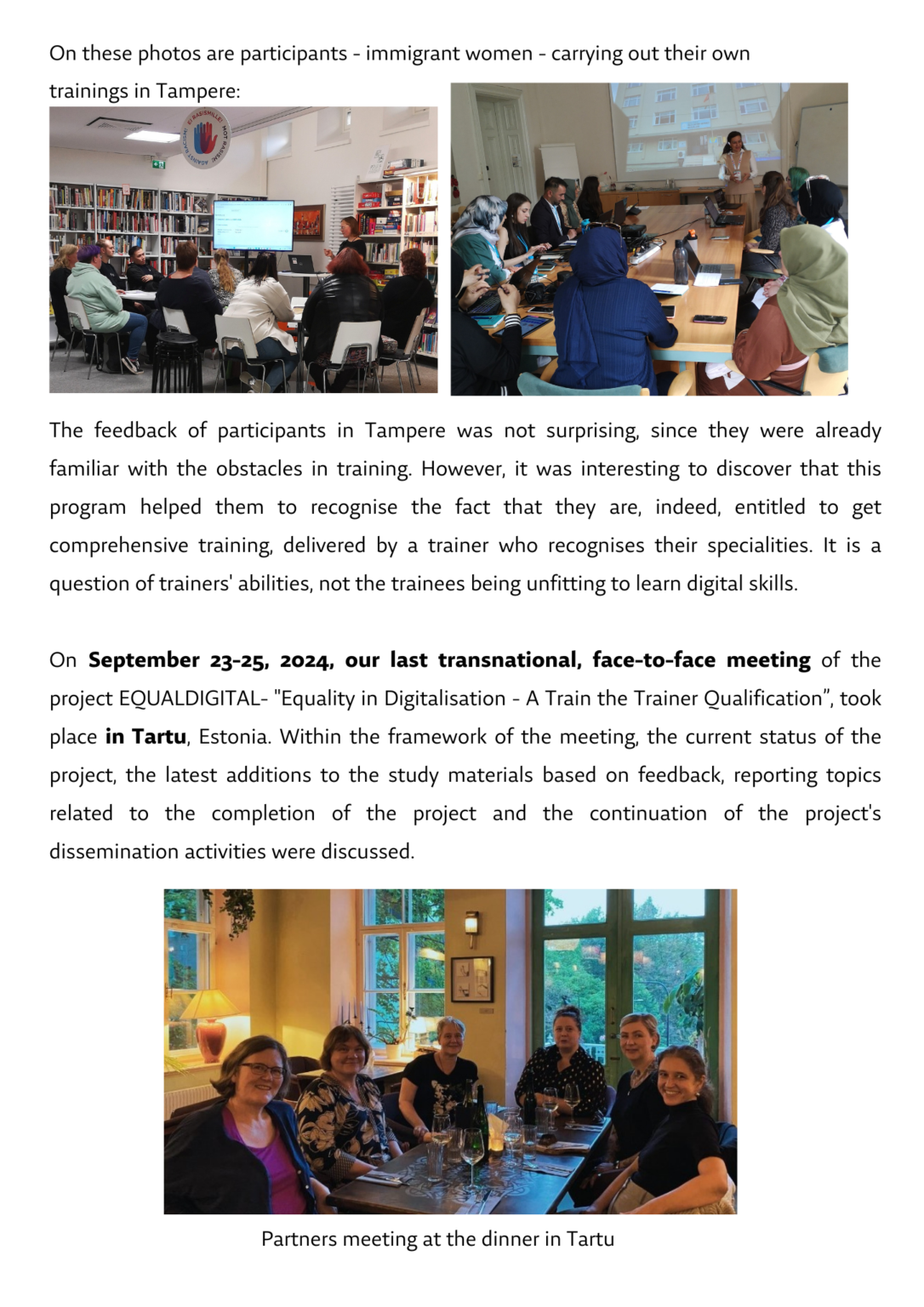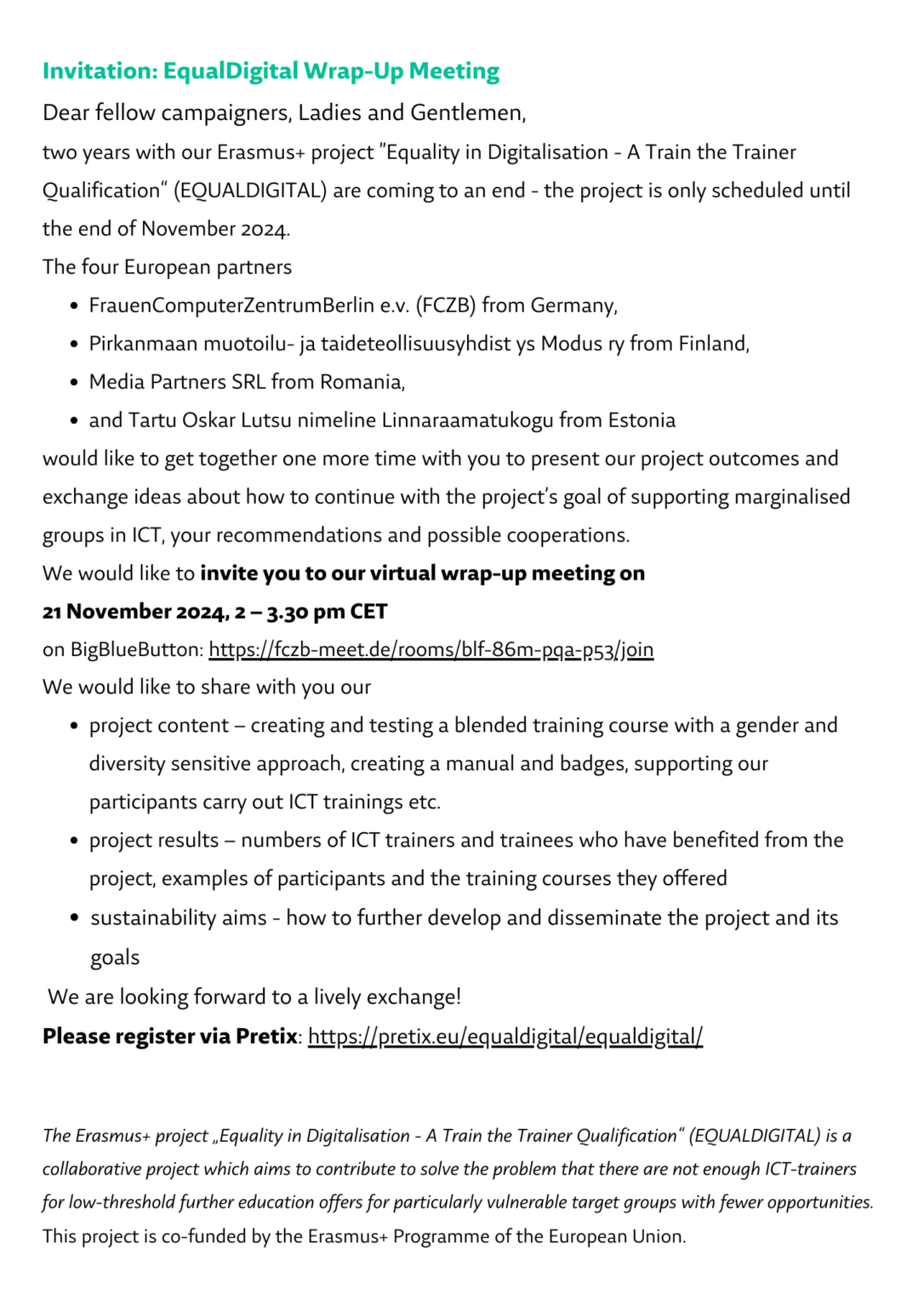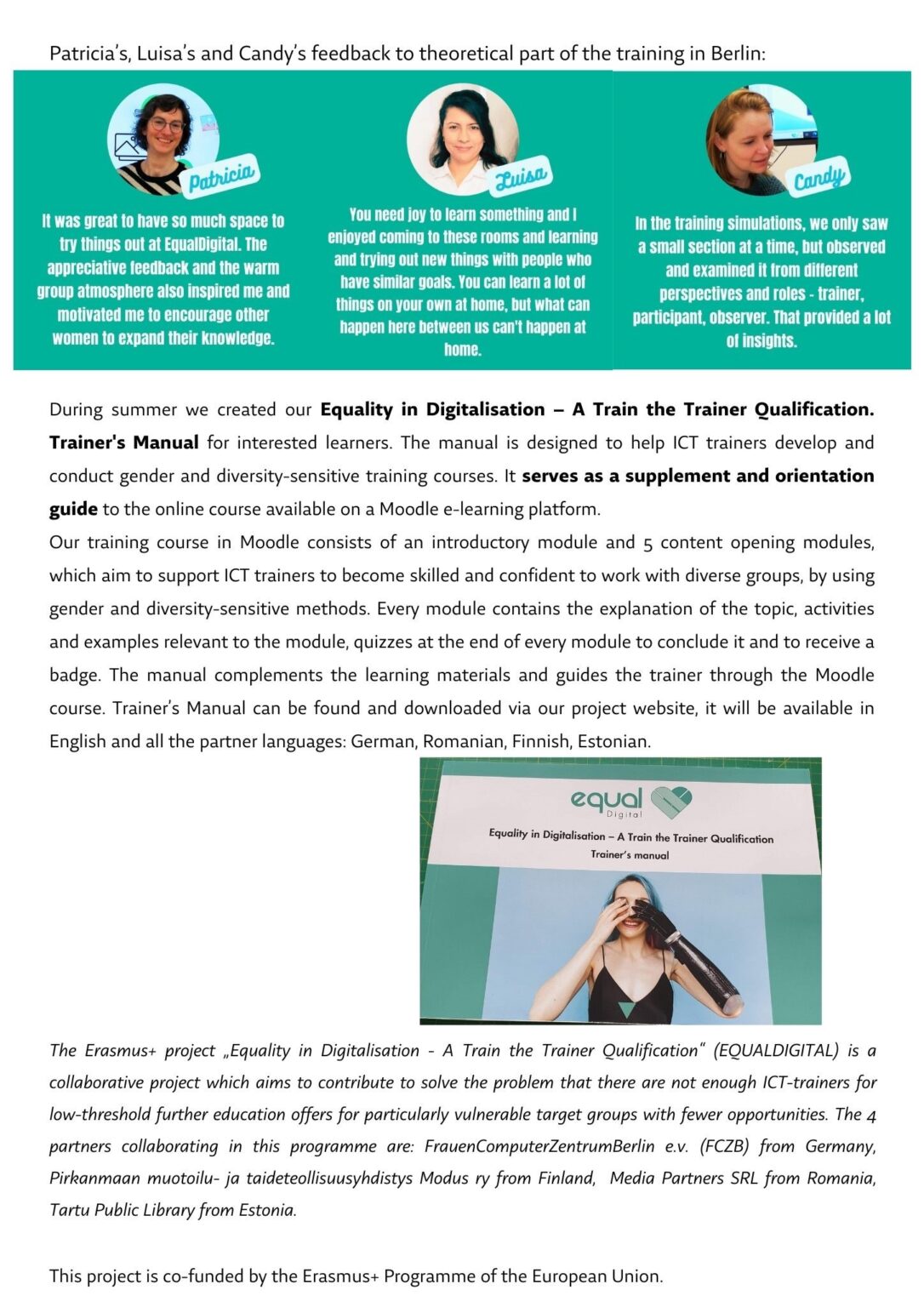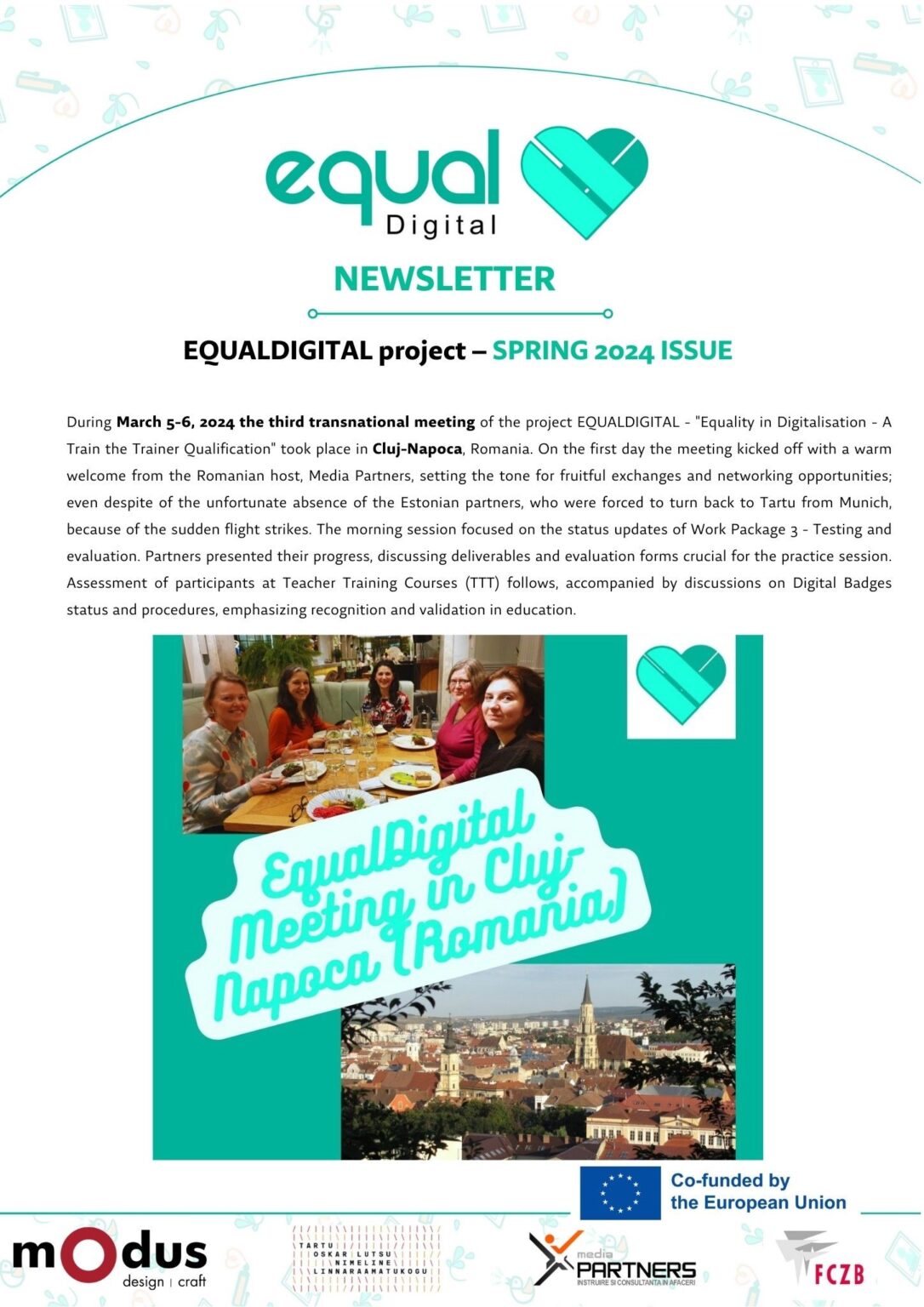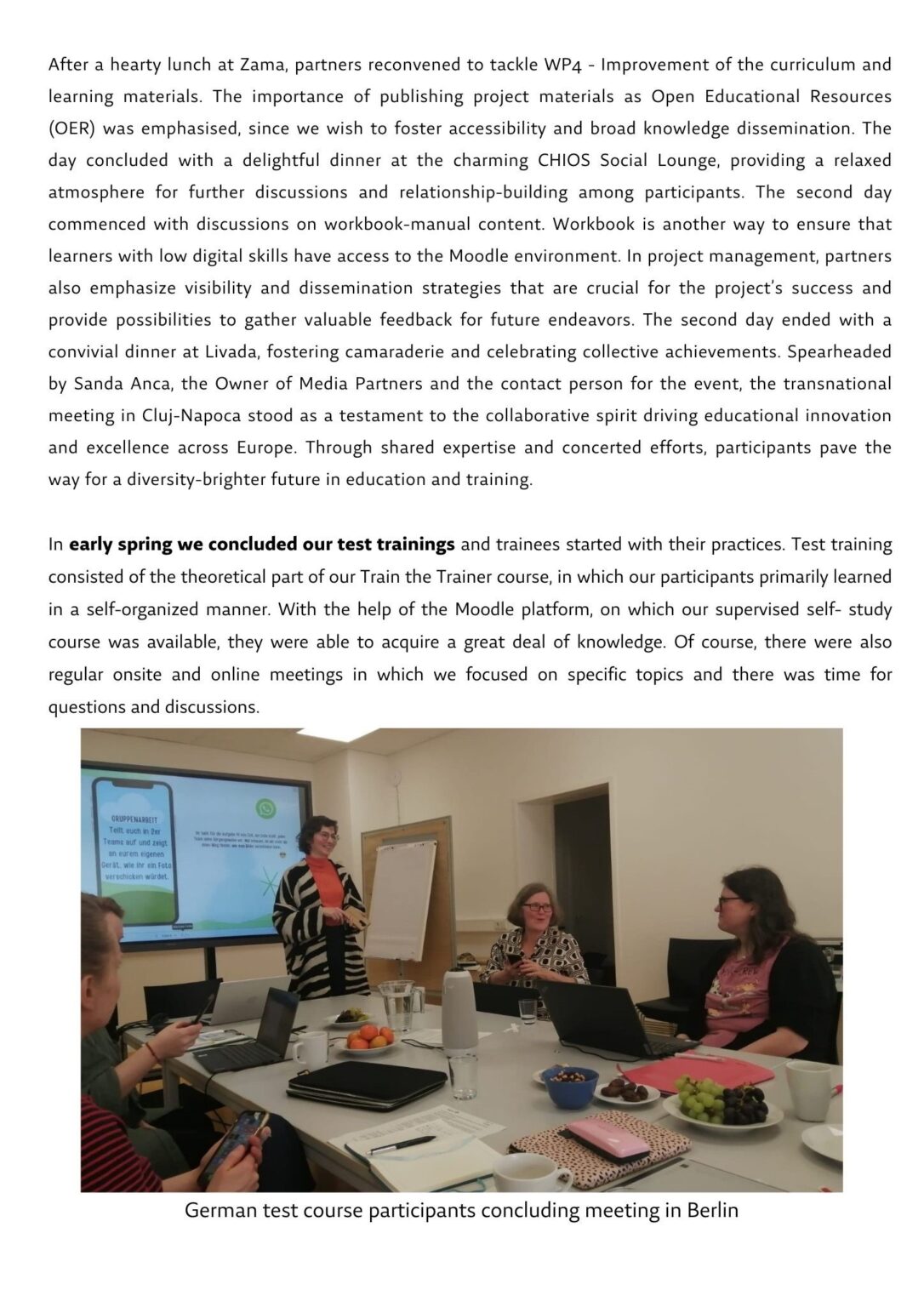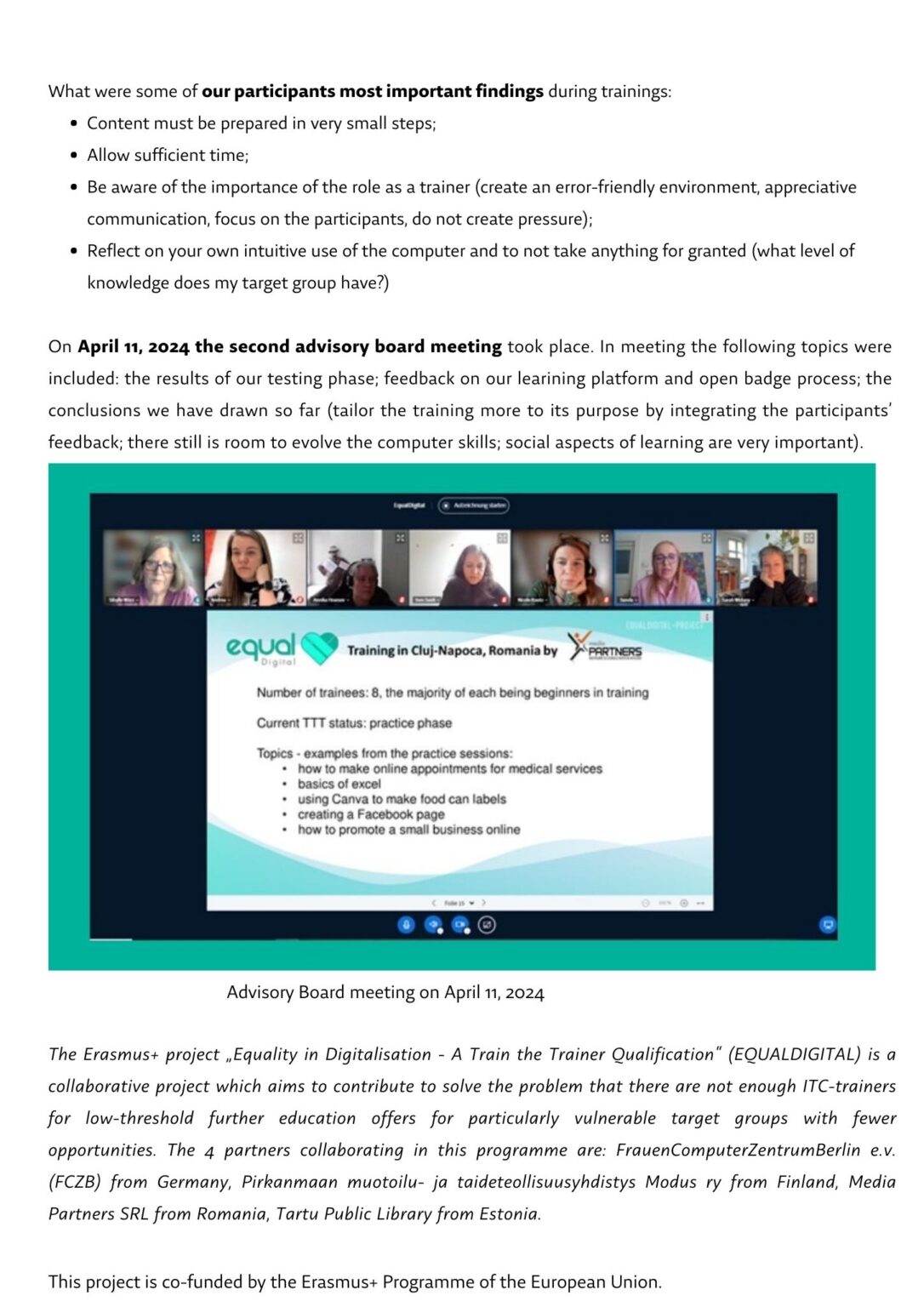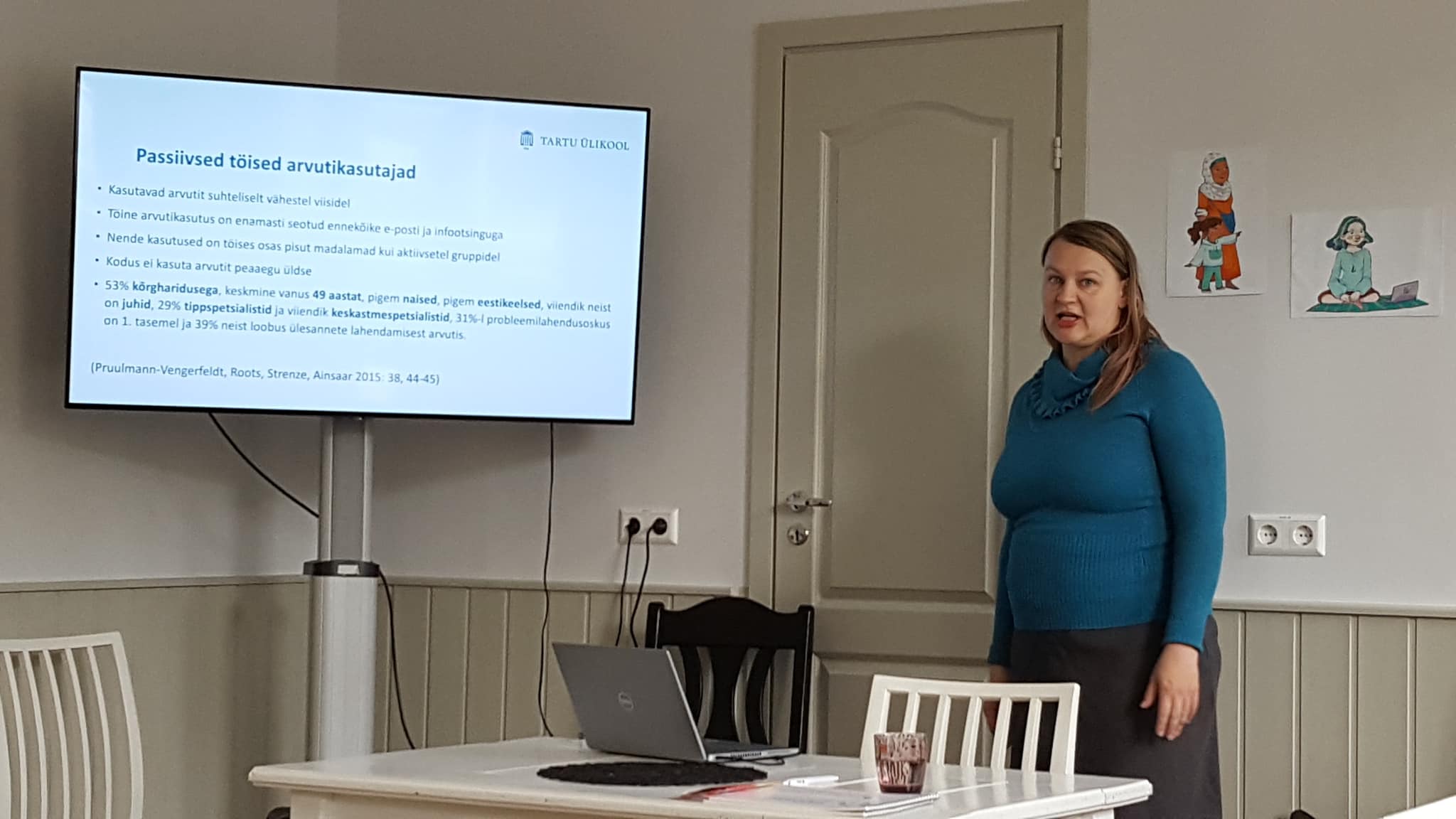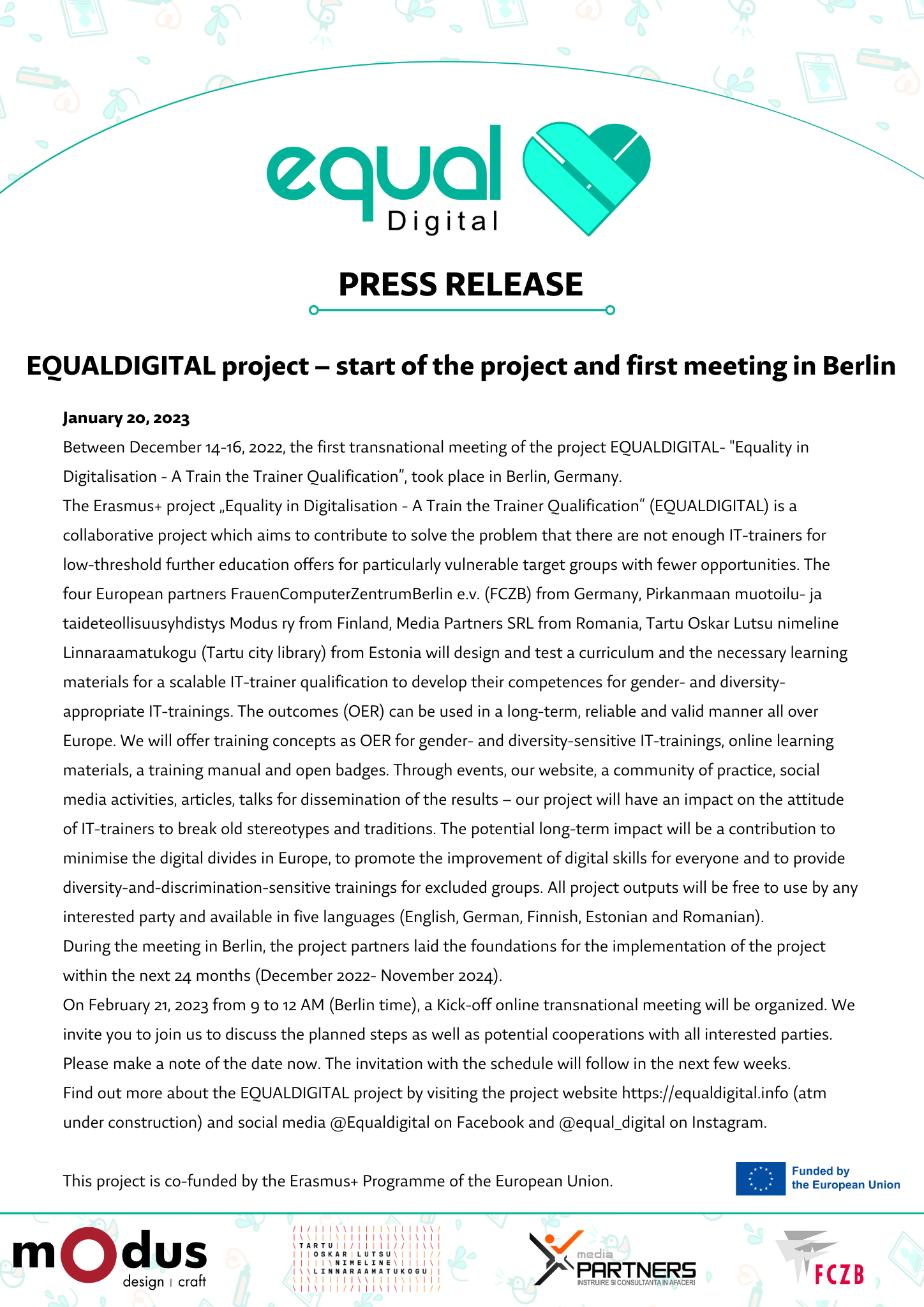In October Ave Kovaljov (Roots) from Tartu University introduced a study about trends of digital in equality specific to Estonia. As this study is directly related to the Equal Digital topics, and the lector is a member of the project’s advisory board (see her introduction here!), we are sharing a brief summary.
Ave began with a general introduction on digital inequality, how it impacts the job market, and finally, how these tendencies in Estonia compare to the rest of the world. She then summarized two studies.
The first study, European Social Survey 2020, measured overall internet use during a set time period and found that during the years 2016-2020 it increased. When placed in the context of internet users across all Europe, Estonian numbers were average. Comparing local demographic groups, it appears that internet use is slightly higher among people with Estonian as their first language and slightly lower among Russian speakers; among both language groups, there seem to be marginally more men than women who use internet every day; age is another factor that brings distinction between “daily” and “never” internet users.
The second study took place in 2015 and Ave was directly involved in research and analysis. This study measured in greater detail how frequently and how skillfully people use digital devices (computers as well as smartphones), their differences between professional and home use, and finally, their ICT problem-solving skill level. In this case computer users reported in greater detail which digital functions they use and how often (from e-mail, chats, and basic info-seeking to digital creation and complex work like programming). The ICT problem-solving skill level was determined in accordance with the Europe-wide studies.
The research team noted that even though many people report frequent computer use, that doesn’t necessarily reflect in their level of digital problem-solving.
When analyzing how the ICT skill level impacts the person’s quality of life, Ave pointed out four groups that stood out. There are the people who do in fact use computers a lot and have advanced skills which they do not need at work – these users could be viewed as an untapped potential in the workforce.
On the other hand, the study identified three groups in Estonia who are more vulnerable and disadvantaged due to their lack of ICT skills. 1) the “passive professional users” – people who do use computer at work because they must, but do not measure up in problem-solving, and their skill limit could in turn limit their options; 2) women with Russian as their first language; 3) elderly people in general.
Ave concluded that these three vulnerable groups would benefit the most from widely available and easy to access digital training.

